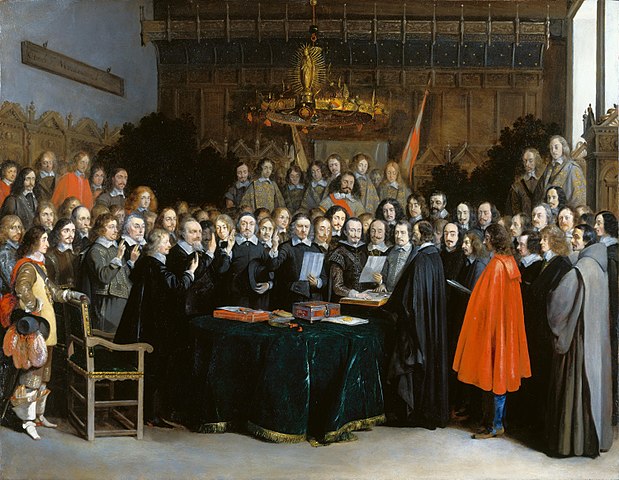
| Further Reading | 3 Reasons Pope Urban II Started The First Crusade |
| Date | 24th of October, 1648 |
| Importance Level | Extremely high |
| Region of World | Central to Western Europe |
The Treaty of Westphalia was signed on October 24th of 1648 and put an end to nearly a century of religious infighting brought about by the protestant reformation in 1517. Without the Treaty of Westphalia, our modern history would look completely different for 3 major reasons.
The 1648 Treaty of Westphalia is important to our modern history for 3 reasons. First, the Treaty of Westphalia fractured catholic dominance over Europe. Second, this treaty forced states to form alliances for their own protection and engage in diplomacy. Third, the Treaty of Westphalia gave states sovereignty within their borders.
Here at The History Ace, I strive to publish the best history articles on the internet. If at the end of this article you enjoyed it then consider subscribing to the free newsletter and sharing it around the web.
Without further ado, here are the 3 reasons why the Treaty of Westphalia is significant to world history.
The Treaty of Westphalia Fractured 1,000 Years of Catholic Dominance Over Europe
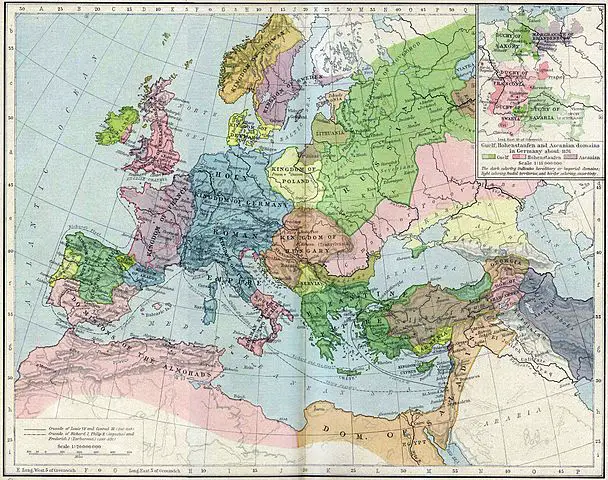
One of the major reasons why the 1648 Treaty of Westphalia is significant to history is because it fractured nearly 1,000 years of Catholic dominance over Europe.
Ever since the fall of the western Roman Empire in the 5th century, the power vacuum of Europe had been filled with the Catholic Church. This was because from the 4th century under Roman Emperor Constantine the Great the Roman Catholic Church had been building social networks across Europe. After Rome fell the only entity that still retained power in the former Roman Empire was the Catholic church.
Rome fell in the 5th century and by the end of the 6th century the Catholic Church had spread across much of the former Western Roman Empire coming to influence nearly all of Europe. By the 11th century, the Catholic church had managed to control nearly all political aspects of medieval life.
This trend continued well up until the 16th century when Martin Luther published his Nintey-five Theses on the 31st of October, 1517. This publication jumpstarted the Protestant Reformation and started over a century of Religious wars across Europe.
By the 17th century, everybody was tired of fighting. The Treaty of Westphalia in 1648 made it so that each ruler could determine the official religion of their held territory. This was the final nail in the coffin of Catholic dominance as now kings and rulers no longer needed Catholic divine authority to rule over their subjects.
Simply put, the Treaty of Westphalia is important to western history because it removed the concept of divine mandate coming from the Holy See or Catholic church. Now rulers had to justify their own right to rule over their subjects. Just over a century later Europe would experience countless revolutions that pushed the western world towards democratic forms of government.
The Treaty of Westphalia Forced States to Form Alliances and Engage in Diplomacy
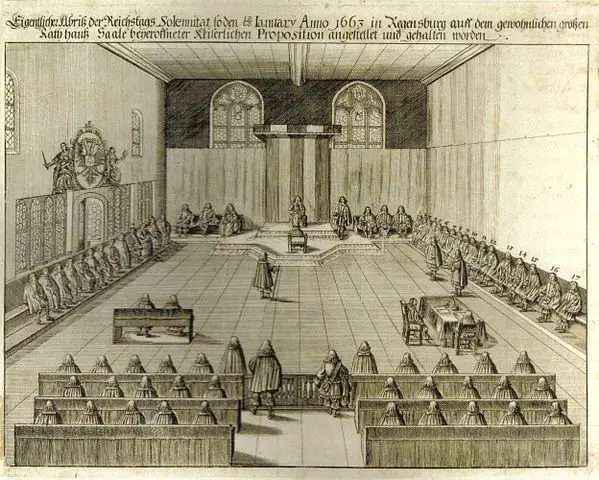
One of the main reasons why the Treaty of Westphalia is important to history is because it forced sovereign states to work together to secure their future. Before the treaty each state was reliant upon the European church to prevent wars and conflict.
One of the main tenants of the Treaty of Westphalia was that it was up to each ruler to secure the safety and happiness of their subjects. For the people of each ‘state’ this was a scary proposition as most were surrounded by other rulers who would happily seize control if the opportunity presented itself.
Because of this diplomacy and alliances began to form almost immediately after the treaty. Right after the treaty was signed limits on the Holy Roman Emperor’s power were introduced in the Imperial Estate; a 3 chamber voting ‘parliment.’ The reason these limits were introduced was to fracture the diplomatic and military power of the Holy Roman Emperor and give it back to each individual Imperial State.
These states then began to form alliances to protect themselves. This was the start of a primitive form of interntional diplomacy. Across Europe many governments would start to see a similar fate to the Holy Roman Empire.
France would engage in a series of wars to secure military alliances and power. England would see a massive civil war to ‘restore power’ back to the common state. Spain would engage in several wars surrounding the Dutch Republic.
All of these conflicts were results of international diplomacy growing due to the pressures from the Peace of Westphalia. Simply put, the Treaty of Westphalia in 1648 created modern international relations that led to alliances and diplomacy across Europe.
The Treaty of Westphalia Solidified States Borders
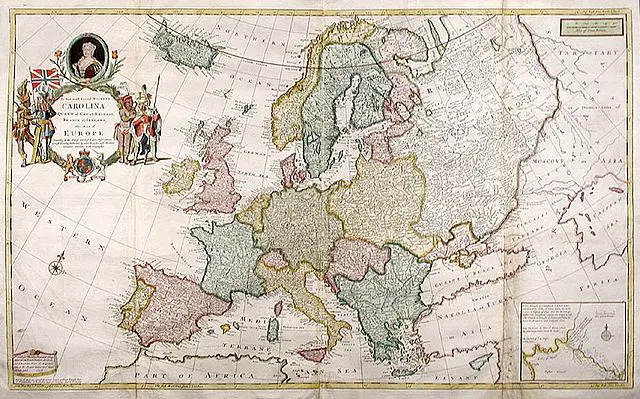
One of the main reasons why the 1648 Treaty of Westphalia is significant to history is because it solidified much of the current state borders of Europe.
One of the major tenets of the Treaty of Westphalia is that each ruler had control over their domain and subjects. As a result of this, each domain had to be mapped out officially to establish boundaries.
If you look at the above map of Europe shortly after 1648 you will notice that it looks a lot like the modern map of Europe. This was because the treaty marked the boundaries of each domain. Outside of some deviations such as Spain, Poland, Sweeden, Finland, Norway, and Greece, much of the European map looks similar to our modern-day one.
Now that countries had established borders they needed to have a way to protect these borders from other nations. This was the birth of a modern standing military to enforce peace. Now nations around the world would start to build up an army to protect and enforce their boundaries.
Before the treaty in 1648, there were no ‘countries’ as we would recognize them today. There was a domain or realm of each individual lord or king. These realms would often overlap which was not an issue as fiefs would establish the boundaries. It was up to each lord to enforce the boundaries of their individual fief. This means that if you lived in the medieval era you would see many different armies loyal to individual lords fighting over land for their individual fiefs.
The Treaty of Westphalia completely changed this. Now entire realms were under the jurisdiction of the king or lord. It was up to this ruler to enforce the peace and sovereignty of their own realm. As such, they would employ large professional armies that were loyal to them.
Simply put, the Treaty of Westphalia is significant to world history because it established modern borders for countries and the need to build up a permanent standing military presence to enforce them. This has led to the modern use of militaries and national borders today.
Conclusion
There you have it; an entire article dedicated to the 3 reasons why the treaty of Westphalia is significant to western history.
Many people make the mistake of equating this treaty as the foundation of modern nations. The concept of a nation is a super ambiguous one and predates the Treaty of Westphalia by thousands of years. The Treaty of Westphalia just established our current understanding of a nation.
I hope you enjoyed this article. Here at The History Ace, I strive to publish the best history articles on the Internet. If you enjoyed the article then consider subscribing to the free newsletter and sharing it around the web.
Further, you can check out some of the other articles below.
-
How The American Revolution Changed The World
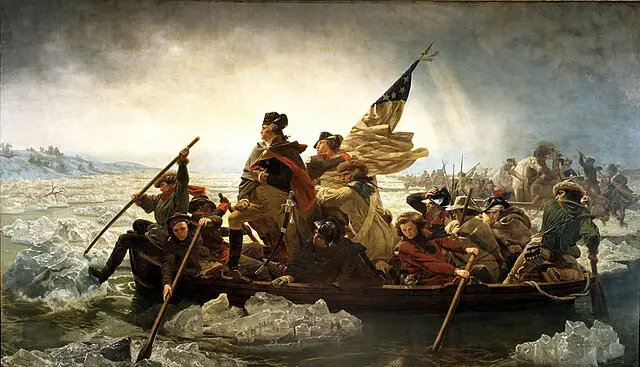
Here is how the American Revolution changed the world. Many people are not aware of just how important this event actually was.
-
Why The Roman People Loved Chariot Racing
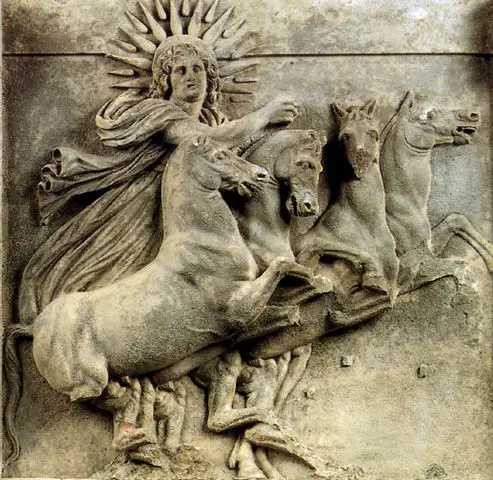
Why did the Roman people love chariot racing? Well it all comes down to these 3 reasons.
-
The Design and Color of Roman Chariots
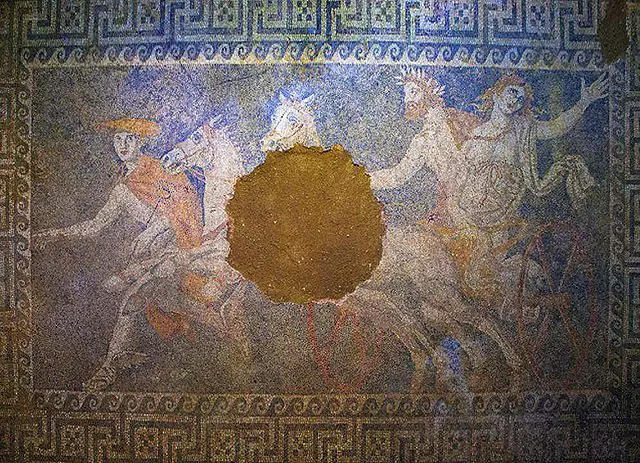
What was the design and color of Roman Chariots? Were they faster or slower then normal chariots? Well here is everything!